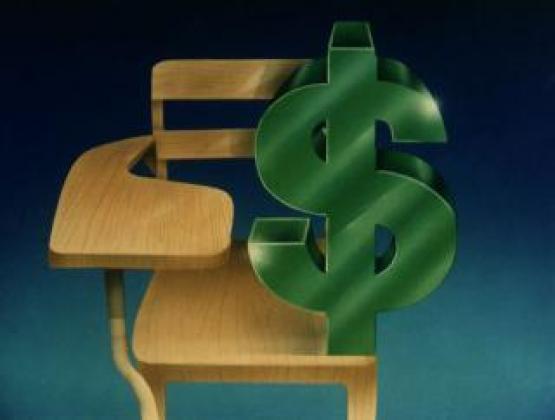
Jeannine LeJeune/Crowley Post-Signal
School districts brace for special session impact
By Jeannine LeJeune
Crowley Post-Signal
CROWLEY – Ahead of the state’s third special session in two years, many discussions and rumors over cuts and funding have been dropped, including a potential cut to K-12 public education.
That has school districts across the state planning for the worst and preparing to take on more as they have in years past with more programs put on their books instead of the state’s and more crowded classrooms. And it’s not the first time that districts are having to feel that weight.
“What’s bad is they keep saying they’re not cutting aid to public schools or MFP, but they add unfunded mandates every year,” said Superintendent John Bourque. “So, if you have the same income, and have increased expenses, is that not a cut?
“It’s just a shame that when you keep saying ‘No cuts to K-12 education’ but there’s increased mandates and no more income, to me, that’s a decrease.”
Acadia Parish has been keeping its eye on Baton Rouge and knows well that what is coming around the corner will likely mean more dollars used by the parish instead of elsewhere.
But, when the state’s Department of Education offered up options for funding, it has been said that one did not go over very favorably: a $35 million increase in basic aid.
Donald Songy, education policy adviser for Edwards, told an influential task force recently that the governor cannot go along with that hike in basic aid.
The decision, sparked mostly by recurring state budget problems, was not well-received by the panel, which includes longtime education backers of the governor.
“It’s all parishes facing (the problems),” said Bourque. “I mean the state’s facing it. There’s a shortage of money, we all know that.
“But in our case we get an extra hit.”
In Acadia, that basic aid number already took a hit with news that the power plant that spent years off of the tax books that recently came online had upped property tax values in the parish, meaning roughly $1 million in funding that the parish would not see.
“They rolled that into MFP, so they take $1 million out of MFP, so that’s a wash,” explained Bourque. “So we don’t get the benefits.”
Bourque explained that the property got “rolled in” because it was seen as the parish increasing its property value and wealth.”
“There needs to be more dialogue with local stakeholders, with the Governor’s Office and with legislators,” Scott Richard, executive director of the Louisiana School Boards Association, said days later.
The proposed freeze — a common theme since 2009 for public schools — would apply to the 2017-18 school year.
It would follow a $24 million cut in dollars for public schools in 2016, Edwards’ first year in office.
But even if it’s not labeled a cut, it likely means a freeze in funding and more unfunded state mandates, which, as Bourque points out, are just as detrimental to funding and the state of education in general.
The special session for Louisiana legislators begins Feb. 13, and must close by Feb. 23.
After then, the parish, as well as other school districts are hoping to have a bit of a clearer picture about funding moving forward.
On the other side of the coin, Bourque, and many others, continue to try and run school districts like a business, but Bourque also pointed out that that also can’t truly be done properly.
“We try to run it like a business, but a business can raise prices (if it needs to) or do this or that,” he said. “In our case, we can reduce personnel, which we have in the past, but it’s going to be a trying time for all the schools and school districts.”
That part is similar to the boat higher education has found itself in across the state and its attempt to receive some autonomy in regard to tuition prices. That move was rejected by voters in November, however.
“Even if there’s not a cut, we haven’t kept up with inflation,” said Bourque. “That’s losing 3 percent annually.
On the other side of things, the funding freeze means once again the parish cannot even keep up with inflation, thus driving more of a wedge between the business of education and keeping up.
“Even if there’s not a cut, we haven’t kept up with inflation,” said Bourque. “That’s losing 3 percent annually.
“Price goes up when doing business, and the added expenses don’t help either.”
